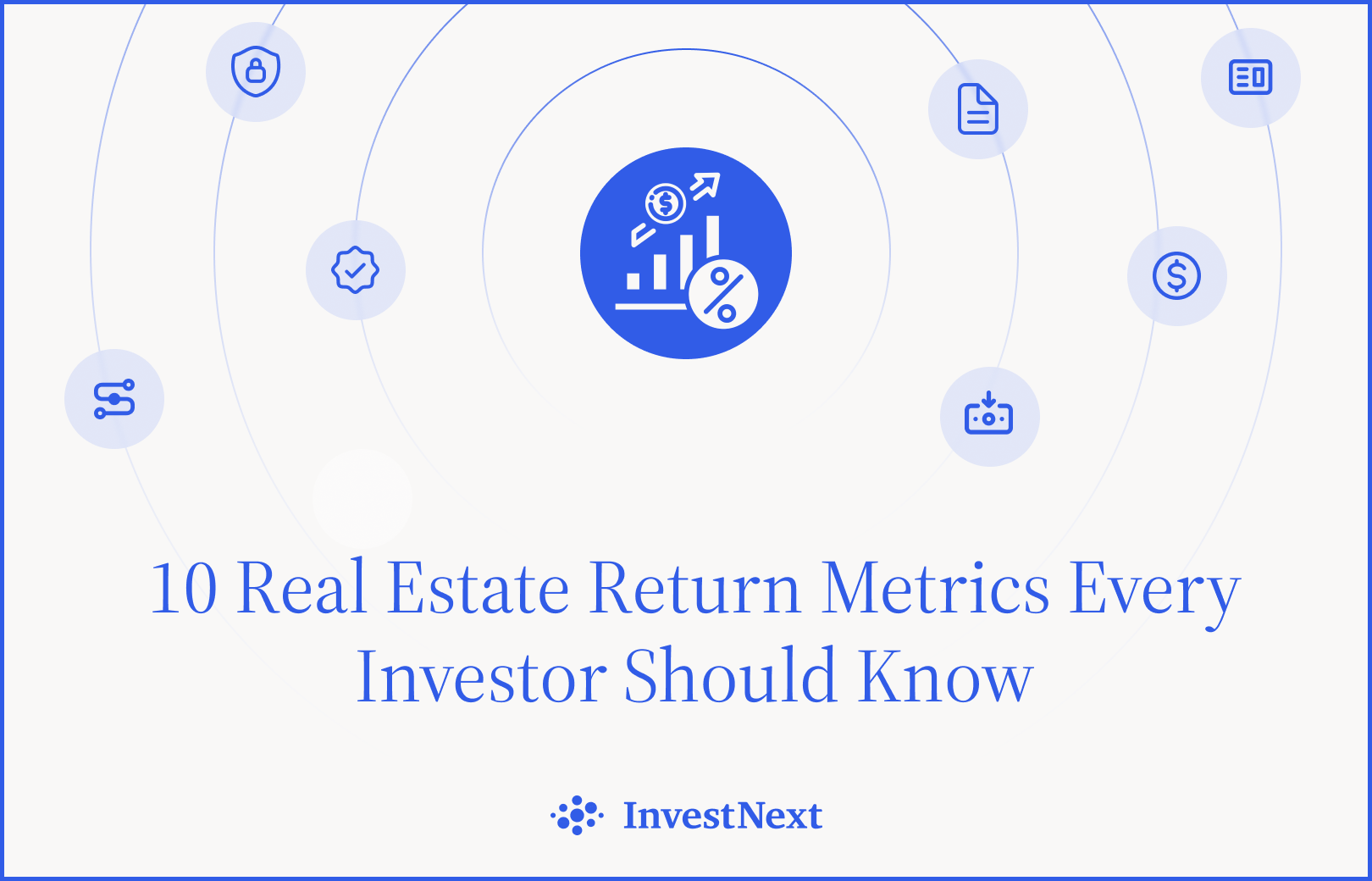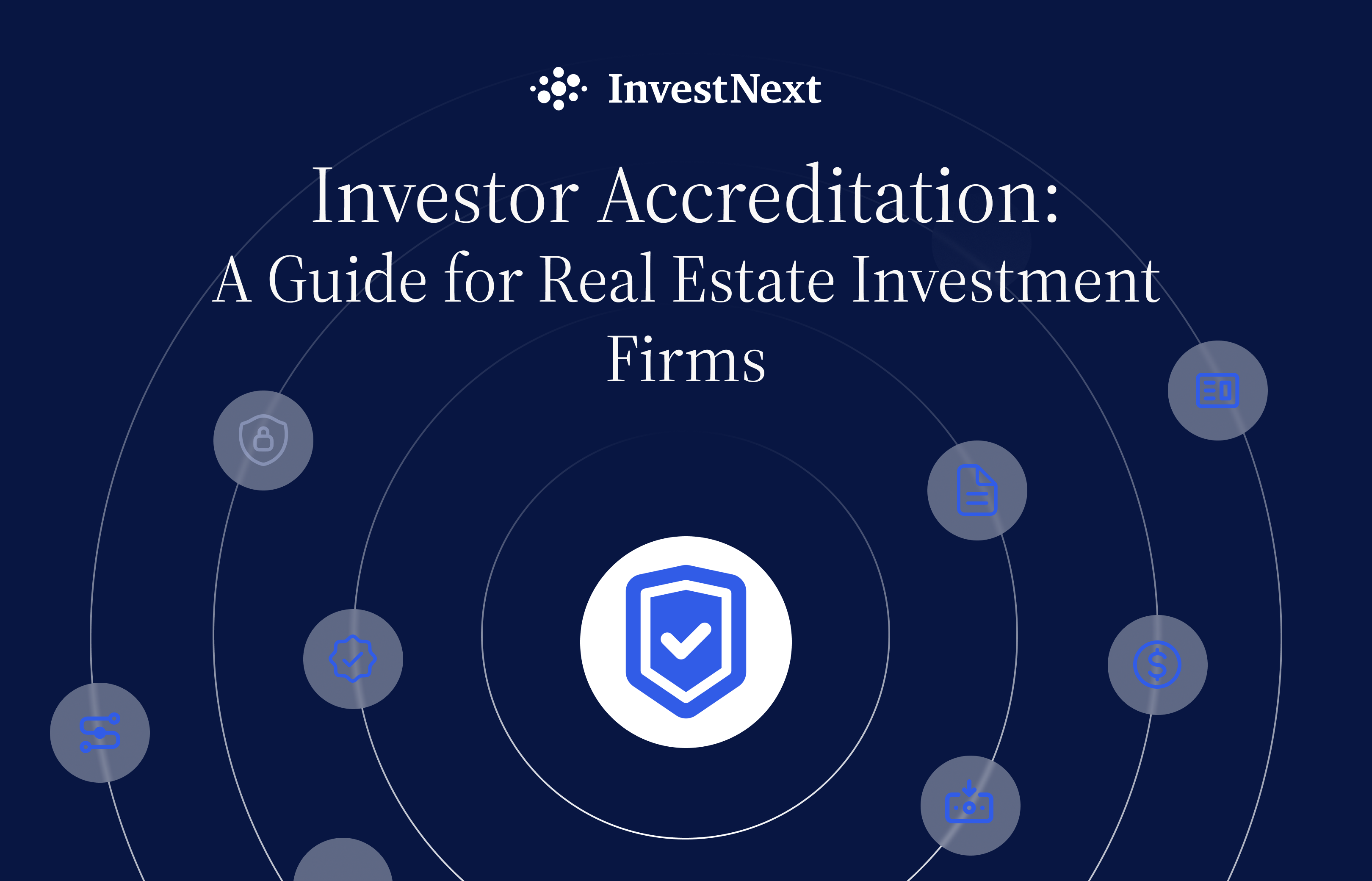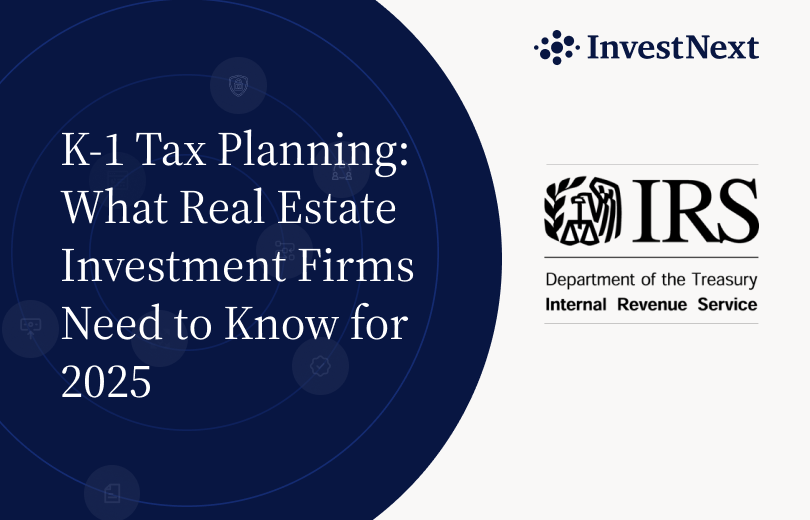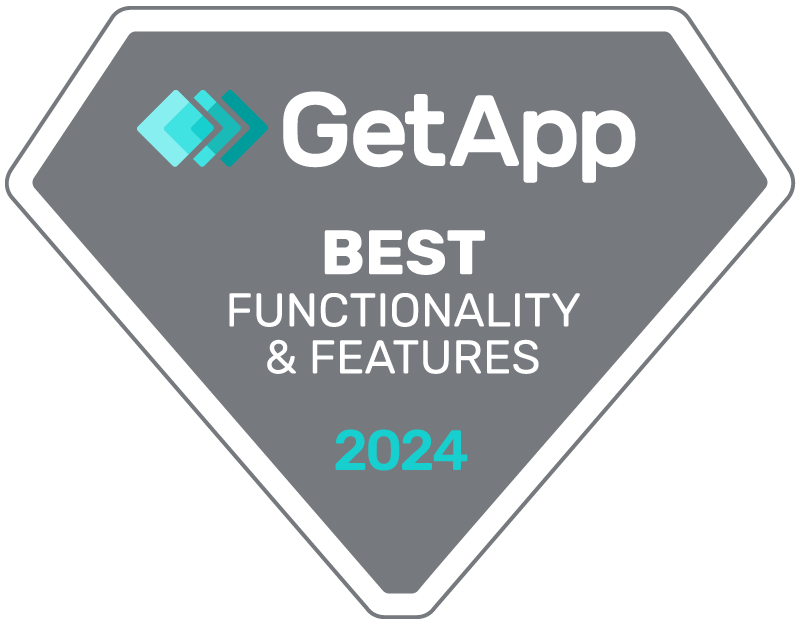Real estate investor relations are the lifeblood of your investments. Whether you’re an investment firm or a developer, it’s crucial to understand your investors’ goals and preferences to establish a solid relationship with them. So what is “investor relations”? In this article, we’ll uncover why investor engagement is essential and the best practices you can use to further build and invest in your relationships with your investors.
By being proactive and seeking ways to enhance investor engagement, syndicators can position themselves for success in raising capital for their real estate projects. This includes communicating effectively with potential investors, identifying which investors fit a particular project, and aligning deal structures.
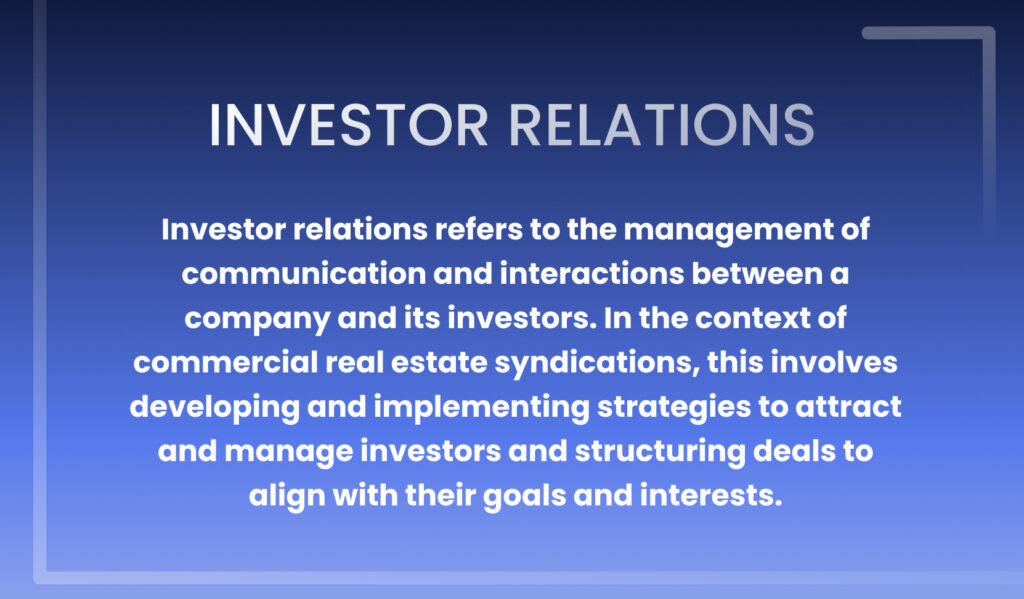
What is Investor Relations
Investor relations refers to the management of communication and interactions between a company and its investors. In the context of commercial real estate syndications, this involves developing and implementing strategies to attract and manage investors and structuring deals to align with their goals and interests. When it comes to managing investors, having a well-thought-out plan is crucial from the first encounter and throughout the capital raise lifecycle.
By implementing an investor relations strategy, a company can build trust, establish open and transparent communication channels, and cultivate positive relationships with its investors, increasing investment opportunities and better long-term outcomes.
Developing The Ultimate Investor Relation Experience
The ultimate investor experience goes beyond delivering high returns; it involves creating a seamless and personalized experience for investors from start to finish. To develop the ultimate investor experience, we will cover the following:
- Understanding Investor Needs and Expectations
- Factors that Influence Investor Expectations
- Establishing Trust and Transparency
- Enhanced Availability
- Developing a Successful Investor Experience
Understanding Investor Needs and Expectations
Investors have a wide range of expectations when it comes to their investments, but some of the most common include:
- High returns: Many investors expect to earn a high return on their investment, often in the form of capital appreciation or rental income.
- Low risk: Investors often seek out investments that have low risk, or where the risk can be easily managed.
- Predictability: Investors may expect their returns to be predictable and consistent, with little variability over time.
- Control: Some investors want to have control over their investments, such as the ability to make decisions about the property or investment strategy.
While these expectations are understandable, they sometimes align with the realities of real estate investing. For example, real estate investments can be volatile, and returns may be lower or more predictable than investors would like. Additionally, investors may have less control over their assets than they would like, mainly if they invest in a fund or work with a partner.
Factors that Influence Investor Expectations
There are a number of factors that can influence investor expectations, including:
- Past experiences: Investors’ expectations may be shaped by their past experiences with real estate investing or other investments.
- Information sources: The information investors rely on to make decisions can also shape their expectations. For example, if an investor is exposed to a lot of media coverage about a particular investment strategy, they may be more likely to have high expectations for that strategy.
- Personal biases: Investors may also have biases that can shape their expectations. For example, risk-averse investors may have lower expectations for their investments than those comfortable with risk.
- Market conditions: The state of the real estate market can also influence investor expectations. Investors may expect to earn high returns in a strong market, while in a weak market, they may expect lower returns.
Additionally, you want to be well-apt to understand trends that are driving change in commercial real estate. Investors are demonstrating an increasing interest in social impact development, which involves projects that positively impact people’s lives and communities and create economic opportunities. These projects include mixed-income housing, community and healthcare facilities, and co-working office spaces. Reports suggest that impact investments amount to over $114 billion worldwide.
Always remember that emerging investors seek to achieve social objectives in addition to financial returns, and they expect to see the direct impact of their investments on communities. To meet these expectations, sponsors must provide regular metrics and track these investments’ social impact.
If you’re interested in understanding more about social impact-driven investing, here are some additional articles below:
- Introduction to Impact Investing by Forbes
- Demand For Impact Investing Is Rising. Here’s Why by Forbes
- Impact Investing in the World of Real Estate Funds by EY
Establishing Trust and Transparency
Investors want to feel sure they are making an educated decision when selecting a sponsor and committing capital. They also want real-time, on-demand information into how their funds are functioning and where they are being invested. This requires creating a transparent and honest environment in all communication, including being transparent in financial reporting, communicating regularly, and promptly responding to inquiries.
Through these efforts, sponsors can foster a sense of trust between themselves and their investors, which becomes a solid foundation for a successful investor relationship. By prioritizing transparency and trust, sponsors can ensure a more streamlined transactional process and establish a long-term relationship with investors.
Enhanced Availability
In the increasingly global and competitive commercial real estate (CRE) industry, investors demand instant access to vital information, regardless of time zone or work hours. This information includes updates on deal flow, deal interaction, deal progression, and historical distributions.
Moreover, investors require convenient and on-the-go access to this information, whether working remotely, traveling, or commuting. As such, investors expect 24/7 online access to their portfolios via mobile devices or web browsers, with real-time updates and rapid access to all investing and legal information. A robust and user-friendly investment management platform enabling investors to monitor their assets’ success at any time and from any location can provide enhanced availability and create a competitive edge for CRE professionals.
Developing a Successful Investor Experience
Commercial Real Estate CRM Tool
The use of modern tech-enabled tools drives change in the industry and empowers sponsors to meet evolving investor expectations. Specific tools can create a winning investor experience, improve efficiency, and raise equity faster. For instance, Real Estate Customer Relationship Management Tool (CRM) software can help your firm streamline client relationships.
By implementing a CRM tool into your capital raise workflow provides a single, central location to store and manage contact information and activity, enabling you, as a sponsor to quickly retrieve investor information and enhance investor communications. It also allows sponsors to efficiently manage relationships with investors and other stakeholders, storing all the important information right at their fingertips.
Additional CRM inclusions:
- Monitor each contact’s investing actions to determine the frequency and nature of their engagement with your company.
- Handle real estate-specific data inputs, including investment history, asset type preferences, geographical preferences, transaction size preferences, and other investment criteria.
- Simplify, streamline, and archive investor communications, including emails and invites to invest.
- Establish responsibilities for maintaining and expanding investor connections.
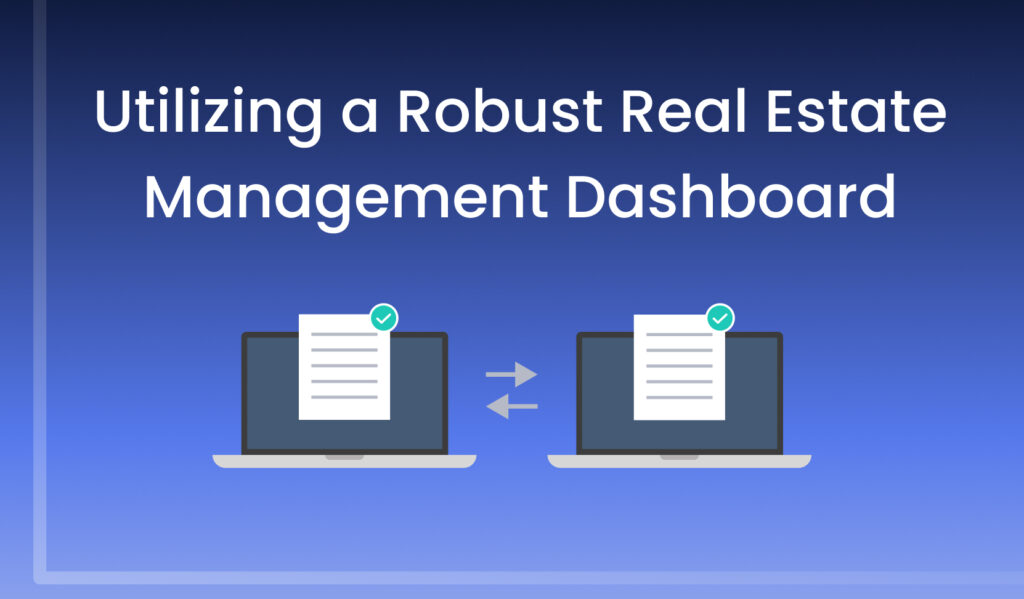
Utilizing a Robust Real Estate Management Dashboard
Capturing and transforming data into actionable insights is crucial to the data-driven dynamics in the real estate industry. You must have the right technology to collect accurate and meaningful data. By utilizing the right solution, real estate professionals can combine predictive and automated capabilities to provide insight-led metrics that investors demand.
An investor management solution with dashboards and reporting empowers investors with valuable insights into the performance of their assets. Dashboards provide a quick snapshot of data, allowing investors to see how much they have invested and made, view historical performance, and identify trends.
By providing trusted and accurate data, investors can confidently make educated and informed decisions to improve their asset performance.
Digital Investment Management System
A digital Investment management system simplifies sharing deals, investor-specific documents, and information, such as statements and Schedule K-1s, enabling investors to quickly access and download those key documents from anywhere. Followed by the right CRM and asset management tool, investors can enjoy an interactive portal that reduces time spent on support from you.
The features that investor management software provides are leading to a shift in the traditional real estate industry, making it easier and more efficient for sponsors to contact and engage with investors. If your focus is investor relations and capital, you want the right system to encapsulate the needs of you and your investors.
Button Line
The science is in a well-thought-out strategy and software used to develop the right investor experience. Sponsors can maintain a consistent stream in the capital raising process, stay ahead of the trends, pay attention to investor demographics, and communicate expectations throughout your syndication workflow.
Having the right knowledge base coupled with a solid investment management tool can help you get the most out of raising capital for your next real estate venture and allows you to draw in the ideal investors.
InvestNext can help you manage the entire life cycle of your real estate syndication deal. Our full-service investment management software allows you to efficiently oversee all aspects of your capital raise in one place. From same-day ACH transactions to waterfall calculations, impress your investors with stylish deal rooms and a clean-cut easy-to-use investor portal.
Schedule a demo today to see how our team can help you to welcome the next level of raising capital.

